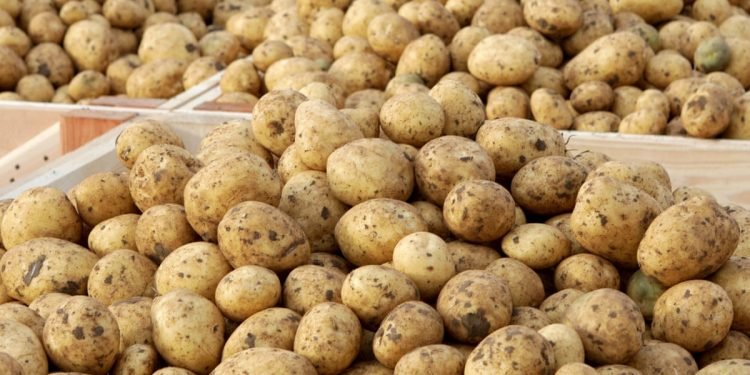London (Brussels Morning) Scotland could face a crisis for its million-pound seed potato trade after Brexit on 1 January 2021.
The UK’s transition period with the bloc has maintained its unfettered access to the customs union and single market despite officially leaving the union on 31 January 2020.
If a deal is not reached in time, it could mean Scotland will no longer sell its seed potatoes to Northern Ireland and Europe.
Scottish seed potatoes are the root vegetables from which other potatoes are grown and are subject to strict EU checks. However, they are thought to be superior to EU standards because of favourable climate conditions that make them less disease-ridden.
They also account for 75 percent of the UK’s seed potato production, worth more than £200 million a year.
In a letter, seen by the Guardian, Scottish MP Mairi Gougeon wrote to the parliamentary undersecretary of state for rural affairs Lord Gardiner of Kimble about the strain uncertainty was having on Scottish potato farmers.
She said that the UK is allowing the EU to sell seeds and plants in Britain for a six month transition period, which so far does not have equivalence.
“I must request again that you urgently contact the EU to press for an early resolution of the UK equivalence applications”, she wrote in a letter, in the face of a potential £15 million financial loss from lack of access to the EU and Northern Ireland.
“If there was a huge disaster and the Northern Ireland potato crop failed, we would not be allowed to send in seed potatoes to help them. Even Asda and Tescos, they wouldn’t be allowed to have eating potatoes from us”, said Iain Barbour from JBA Seed Potatoes.
Importers from Northern Ireland are reportedly stockpiling, which has so far been the advice of the Department for Environment, Food and Rural Affairs (DEFRA) in light of the uncertainty.
A DEFRA spokesperson said they understood the importance of seed exports for UK horticultural businesses:
“We have already formally submitted the equivalence application, on behalf of the UK, to the European Commission and await their response”.




